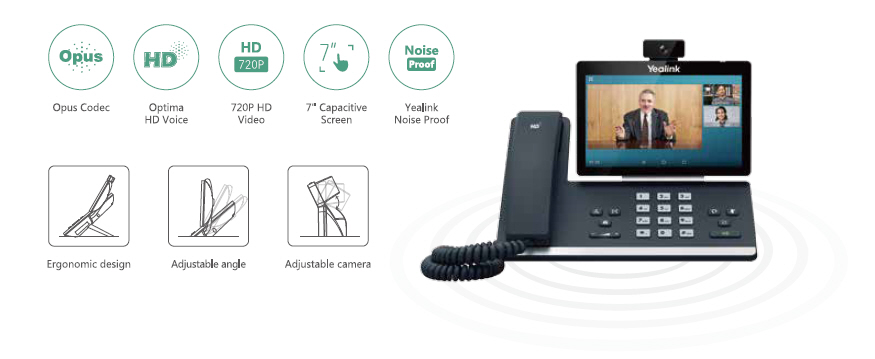In today's fast-paced world, businesses are increasingly adopting remote work environments. With teams spread across various locations, having an efficient and reliable communication system becomes paramount. Enter the VoIP Business Phone System. This article serves as The Essential Guide to Choosing a VoIP Business Phone System for Remote Work, providing you with crucial insights and tips to make the best decision for your business.

What is a VoIP Business Phone System?
Understanding Voice Over Internet Protocol (VoIP)
Voice Over Internet Protocol (VoIP) is a technology that allows voice communications and multimedia sessions over the Internet. Unlike traditional phone systems that rely on physical phone lines, VoIP uses broadband internet connections to transmit voice data.
Key Features of a VoIP Business Phone System
When considering a Business Phone System, several key features enhance productivity:
- Call Routing: Directs calls to the right department or individual. Voicemail-to-Email: Sends voicemail messages directly to your email inbox. Video Conferencing: Facilitates face-to-face meetings without needing to be in the same room. Mobile Integration: Allows employees to use their mobile devices as extensions of the office phone system.
Why Choose a VoIP Business Phone System for Remote Work?
Cost Efficiency
A significant advantage of using a VoIP system is cost savings. Traditional phone systems often come with hefty installation fees and ongoing maintenance costs. In contrast, VoIP typically offers lower monthly rates and fewer hidden fees.
Flexibility and Scalability
With remote work becoming more prevalent, flexibility is critical. A VoIP system can easily scale according to the size and needs of your business. Whether you're adding new team members or expanding into new regions, upgrading your system can be done smoothly.
Enhanced Communication Features
VoIP systems come packed with advanced features like call recording, call analytics, and integration with CRM tools. These features not only streamline operations but also improve customer interactions.
Factors to Consider When Choosing a VoIP Business Phone System
Assess Your Communication Needs
Before diving into purchasing decisions, assess what your company truly needs from a Business Phone System. Consider factors like:
- The number of users Required features Expected call volume
Evaluate Your Internet Connection
A reliable internet connection is crucial for seamless communication when using a VoIP system. Test your bandwidth capabilities—most providers recommend at least 100 kbps per concurrent call.
Look for Customer Support Options
Technical issues can arise unexpectedly; thus, it's essential to choose a provider known for excellent customer support. Check reviews and ratings regarding their responsiveness and availability.
Types of VoIP Systems Available
On-Premise vs Cloud-Based Solutions
On-Premise Systems
An on-premise system involves installing hardware on-site, giving you complete control over your telephony setup. It might be suitable for larger organizations with specific security requirements.
Cloud-Based Systems
Cloud-based solutions are hosted by third-party providers, allowing businesses to access services via an internet connection. This option is more flexible and often comes with lower upfront costs.
How to Compare Different Providers?
Price Analysis
When evaluating different providers, it's vital first to compare pricing models:
- Monthly subscriptions Per-user fees Initial setup costs
| Provider | Monthly Fee | Setup Cost | Contract Length | |----------|-------------|------------|------------------| | Provider A | $25/user | $100 | 12 months | | Provider Business Phone System B | $30/user | Free | 24 months |
Feature Comparison
Make sure you create a checklist of essential features you need versus those that would be nice-to-have. Some common features include:
- Call forwarding Auto-attendant Conference calling capabilities
Additional Features That Enhance Productivity
Collaboration Tools Integration
Many modern VoIP Business Phone Systems allow integration with collaboration tools such as Slack or Microsoft Teams. This capability allows seamless communication across platforms which fosters teamwork among remote employees.

Mobile Applications
Having mobile applications ensures that your team can stay connected regardless of their location. Look for providers that offer robust mobile solutions alongside desktop options.
Security Considerations When Using VoIP Systems
Encryption Protocols
Security should never be an afterthought when selecting a Business Phone System. Make sure that any provider you consider employs strong encryption protocols like TLS (Transport Layer Security) or SRTP (Secure Real-time Transport Protocol).
Regular Software Updates
Another aspect of security is ensuring that your provider performs regular software updates. These updates help patch vulnerabilities that hackers could exploit.
Installation Process: What To Expect
Setting up a new VoIP Business Phone System doesn’t have to be daunting if you understand the process involved:
Planning Phase: Outline what you need in terms of hardware and software. Installation: Depending on whether it’s cloud-based or on-premise. Testing & Training: Conduct tests with users before full deployment. Go Live: Transition fully once all users are comfortable using the system.Common Challenges Associated With VoIP
Though there are numerous advantages associated with VoIP systems, challenges exist:
Dependence on Internet Quality Power Outages Potential Learning CurveHowever, most challenges can be mitigated through proper planning and implementation strategies.

FAQs About Choosing a VoIP Business Phone System
What is the difference between traditional phone lines and VoIP?- Traditional lines rely on physical wires; VoIP uses the internet for transmission.
- Yes! Most providers offer number porting services allowing you to retain your current number.
- While softphones can work on any computer or smartphone, dedicated hardware like IP phones may enhance user experience significantly.
- Some providers offer failover solutions; however, generally speaking, you'll lose service until connectivity is restored.
- Always read contracts carefully; possible hidden costs can include extra charges for international calls or exceeding call minutes beyond plan limits.
- Many cloud-based solutions offer plug-and-play setups designed for non-tech-savvy users!
Conclusion
Choosing the right VOiP business phone system tailored specifically for remote work can greatly influence how effectively your team communicates internally as well as externally with clients and stakeholders alike! Remember always this fundamental question—what are my unique needs? By understanding this along with weighing all aspects discussed above such as cost efficiency through potential upgrades later down-the-line will ensure long-lasting benefits from whichever solution arrives at being chosen!
Whether you're just starting out or looking to upgrade an existing infrastructure—the investment made towards implementing The Essential Guide to Choosing a VoIP Business Phone System for Remote Work will undeniably pay off tenfold in terms of enhanced productivity efficiency overall!